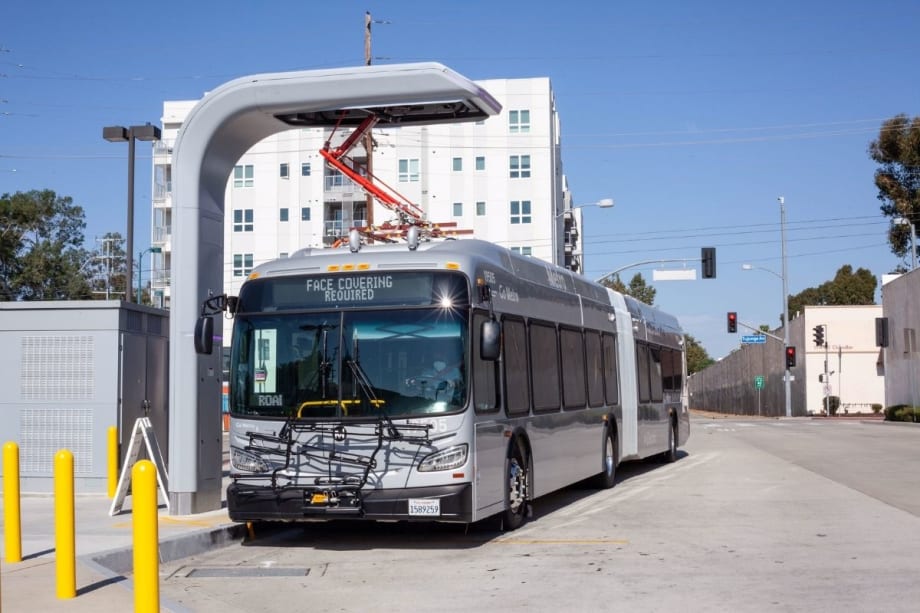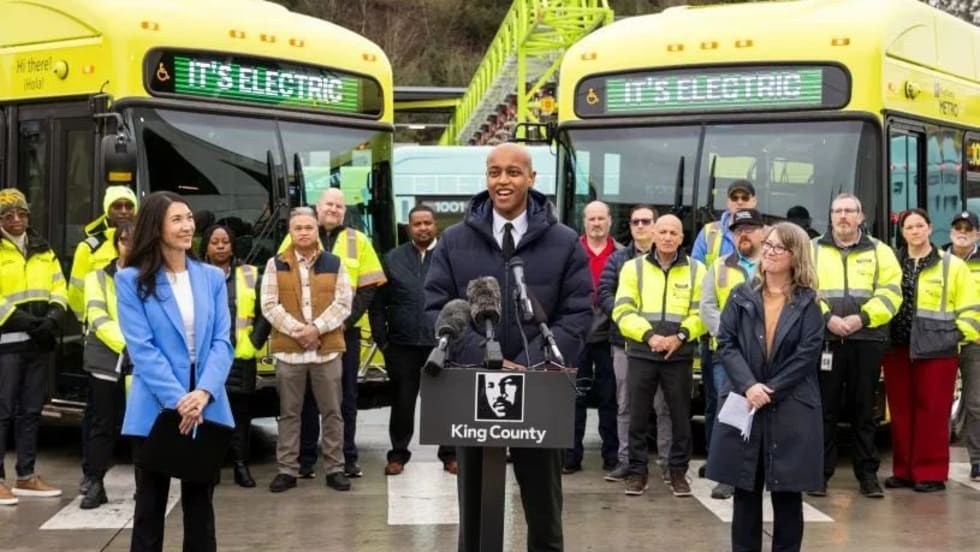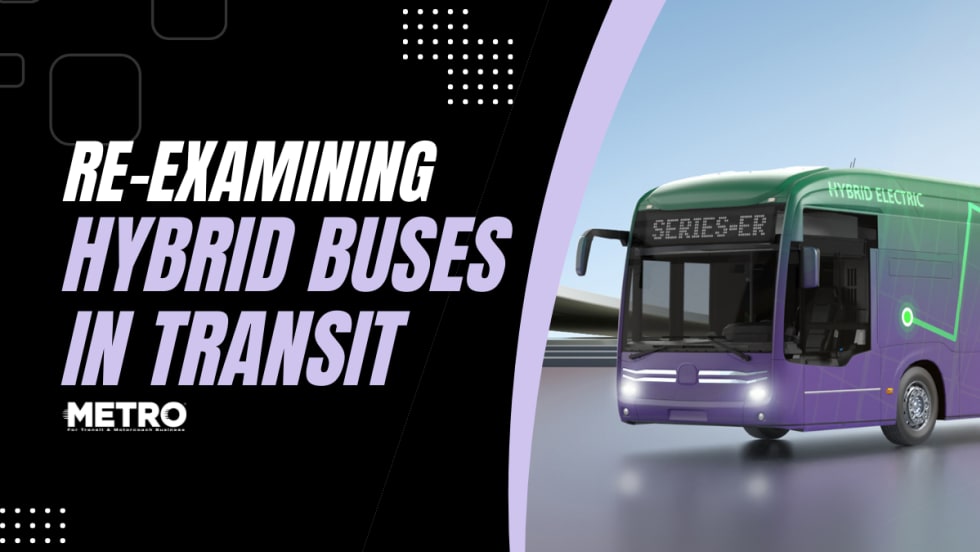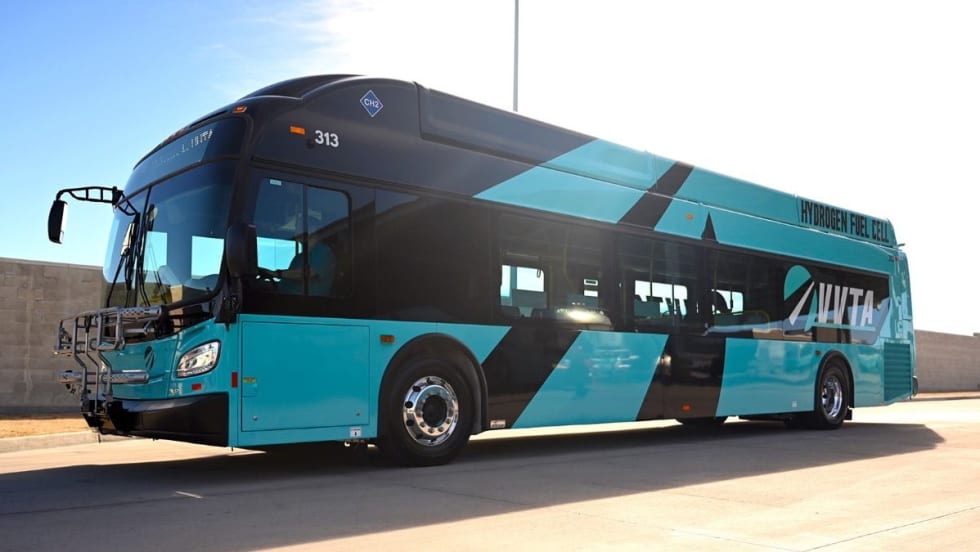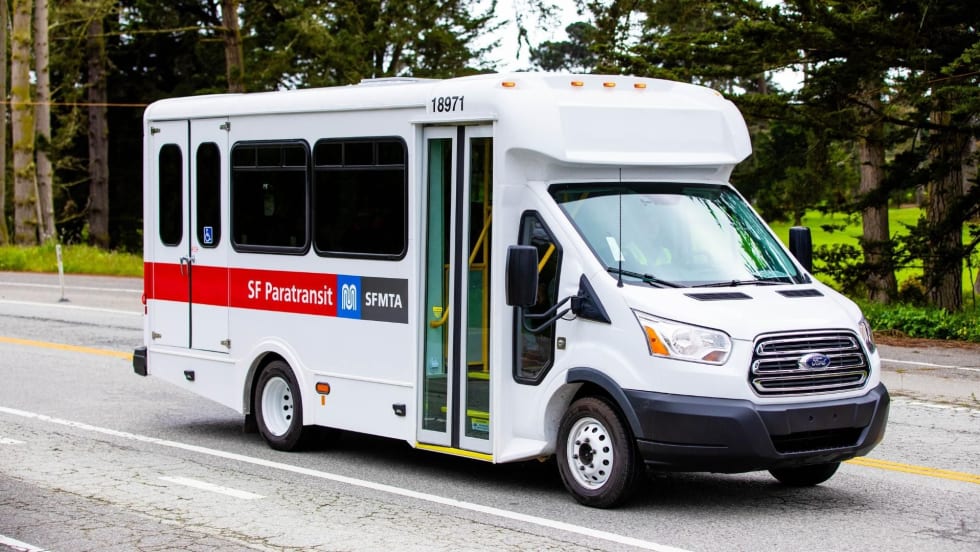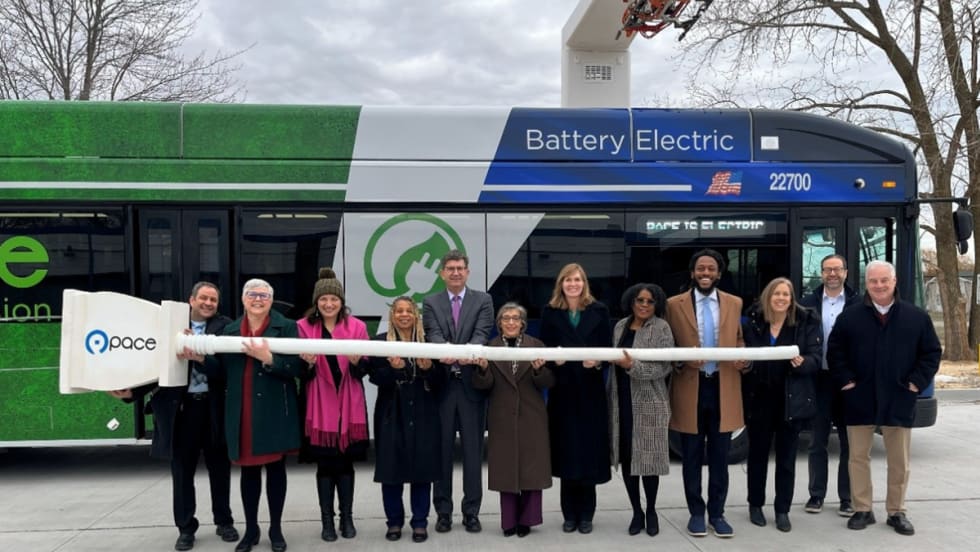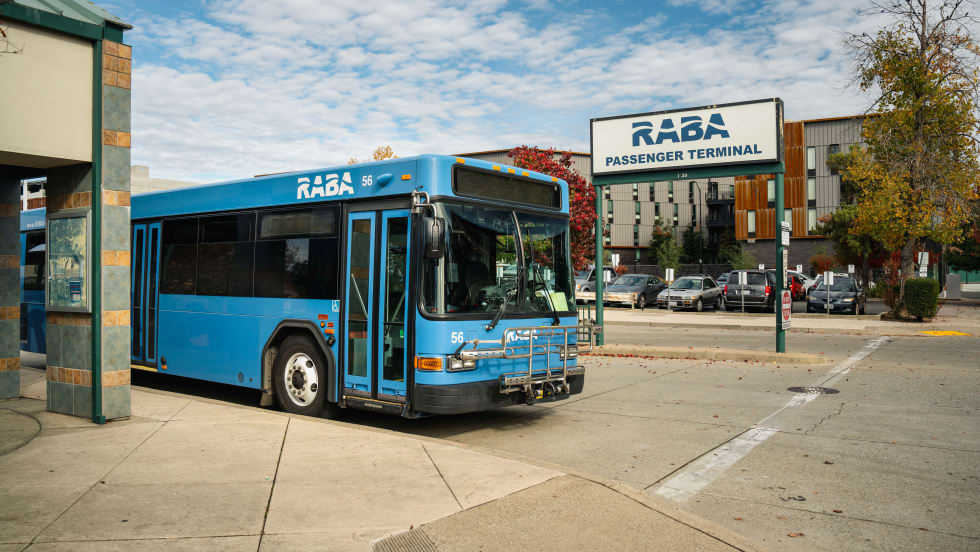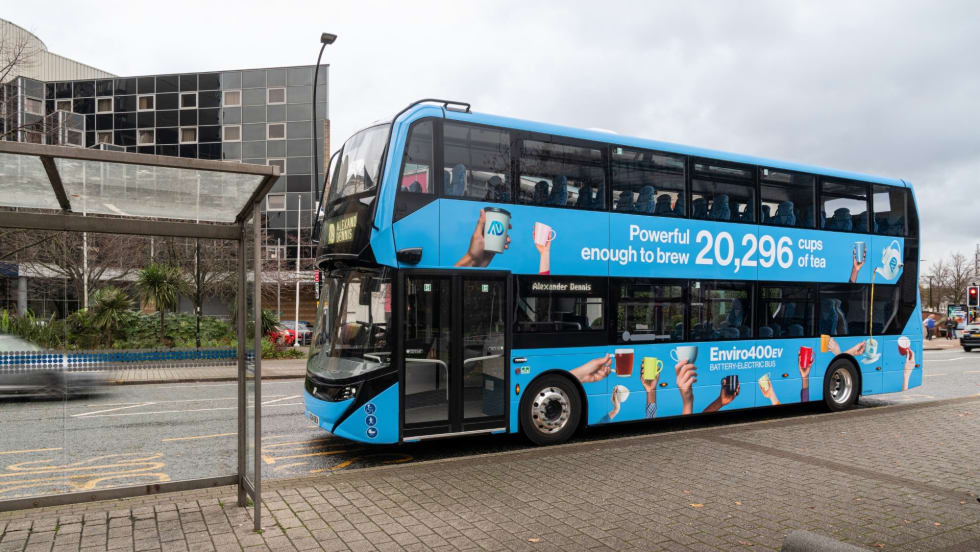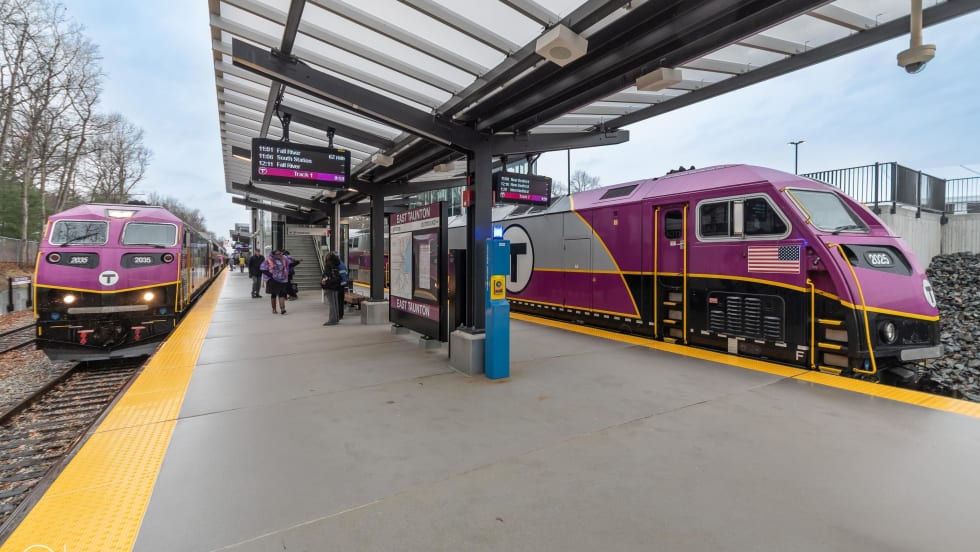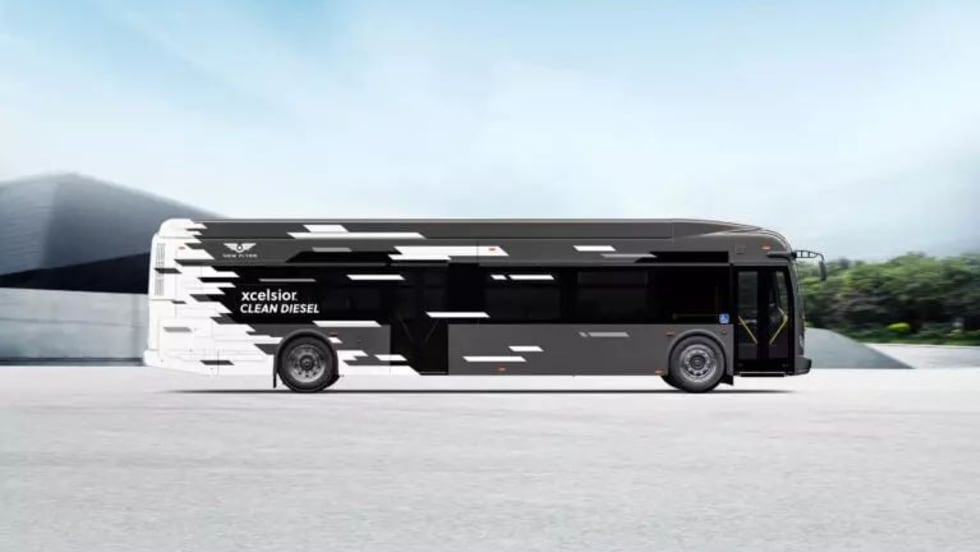The Los Angeles County Metropolitan Transportation Authority (Metro) announced the completion of its transition to an all-electric bus fleet on the Metro G (Orange) Line in the San Fernando Valley.
Metro has phased out its 60-foot articulated compressed natural gas (CNG) buses on the G Line and replaced them with 40 new, 60-foot articulated zero-emissions buses manufactured by New Flyer.
New Flyer's Excelsior Charge NG buses employ electric technologies, such as high-energy batteries and traction propulsion system. Rapid en-route chargers have been installed at North Hollywood, Canoga, and Chatsworth Stations. This gives the buses an all-day operating capability along the 18-mile corridor. Buses have about a 150-mile range on a single charge.
“Transportation is not just the largest source of air pollution in our state — it’s one of our greatest opportunities to realize our vision of cleaner air, lower emissions, and healthier communities,” said mayor Eric Garcetti. “If we’re going to act this decade to save our planet, we need to see solutions on our streets today — and watching these zero-emission buses roll down our roads brings us one step closer to turning the tides of the climate crisis.”
Metro first began converting its bus fleet to electric buses in July 2020. Since completing its transition from CNG to electricity earlier this year, Metro has officially logged 900,000 miles on the electric buses.
“Metro is officially on the road to a zero-emissions future with its first official use of electric buses on a major Bus Rapid Transit Line,” said Hilda L. Solis, Metro board chair and chair of the L.A. County Board of Supervisors. “This marks the beginning of Metro’s commitment and long-term investment in a healthier, more equitable, and sustainable bus fleet for L.A. County, one that helps our region reduce its greenhouse gas emissions at the tailpipe while greatly improving the customer experience.”
The buses also employ dual electrically driven air conditioning units. Customers can charge their portable devices using USB ports embedded in the bus seats. In addition, the buses feature two drive axles for better acceleration and employ regenerative braking to recapture energy.
“Metro already has the nation’s largest clean air compressed natural gas bus fleet, but these zero-emissions G Line buses take us to the next level,” said Ara Najarian, Glendale city council member and Metro first vice-chair. “The future is truly electric, not just for the G Line, but for the San Fernando Valley and beyond as we continue our work to provide a cleaner and more transit-accessible region for our riders.”
Metro’s electric buses cost $1.15 million each. The project includes the deployment of the electric buses and associated charging equipment and infrastructure improvements. The total cost of buses, equipment and improvements is $80 million.
“Five years ago, the Metro Board supported my motion for a plan to use electric buses on the Orange Line,” said Paul Krekorian, Los Angeles city councilmember and Metro board member. “At that time, there were still many questions about the feasibility of electrification of the fleet. The success of the transformation of the Orange Line has answered those questions. This important moment in the history of Metro brings us that much closer to achieving our goal of a 100 percent zero-emissions fleet by 2030.”
Metro said it is planning to use electric buses on the J (Silver) Line that operates between San Pedro and El Monte via the Harbor Gateway Transit Center. The ultimate conversion of the J Line to electric buses is anticipated to be completed in approximately two years.
“Today we are working tirelessly to create a more environmentally sustainable, equitable and resilient public transportation system for all our customers,” said Stephanie N. Wiggins, Metro CEO. “Our zero-emission bus goals are an important part of our overall strategy to reduce our agency’s carbon footprint and become carbon neutral. We continue as a transit leader in our march towards a more sustainable and resilient transportation system that will benefit our customers, our industry and our planet.”



